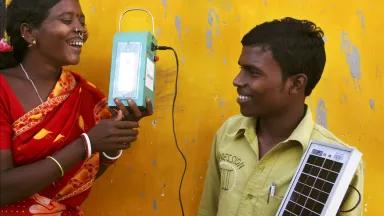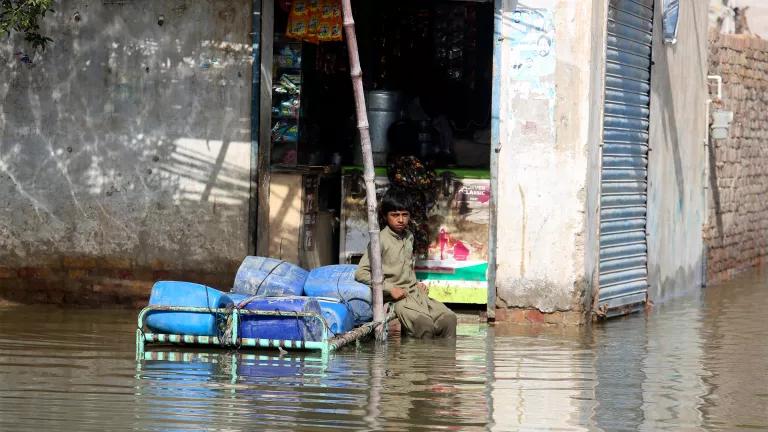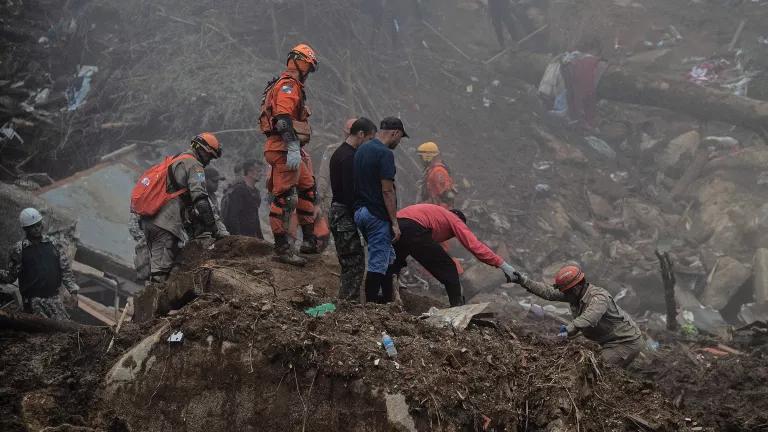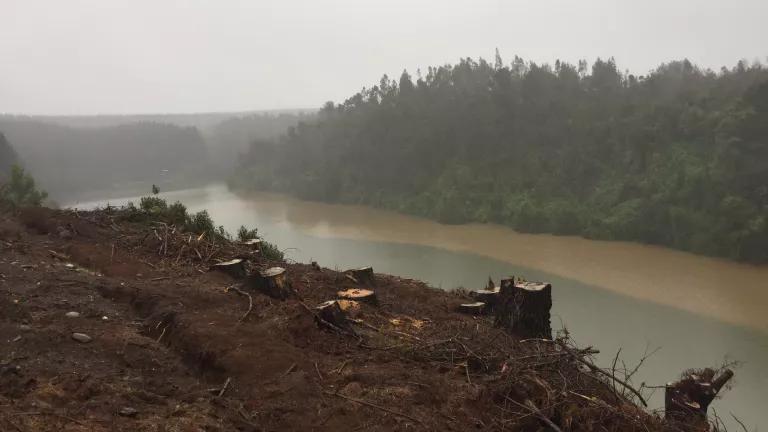At Global Climate Talks, Stakes Are High but So Is Opportunity
COP28, the United Nations climate talks in Dubai, must be centered on raising ambition, strengthening accountability, and advancing equity.
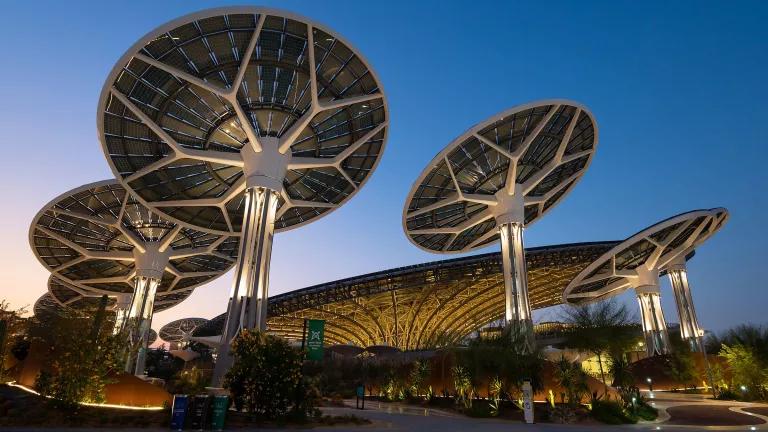
The Terra Sustainability Pavilion in COP28’s Green Zone
Aleksandar Tomic/Alamy
As world leaders head to Dubai this week for the next round of global climate talks, the earth is on track for catastrophic climate change, with cascading disasters already mapping the road to widening risk and ruin.
Across the planet, the climate crisis is taking a rising toll on families and communities, damaging coastlines, forests, and farms; threatening public health and economies; setting back equity and environmental justice; and imperiling wildlife, habitat, clean water, and air.
Nations are taking action, but not with the urgency the crisis demands.
To avoid certain climate calamity, the world must move much faster in turning climate pledges into progress by phasing out fossil fuels and helping developing countries confront the existential challenge of our time. That’s why the United Nations talks in Dubai must be centered on raising ambition, strengthening accountability, and advancing equity. The stakes could not be higher.
At the landmark 2015 Paris climate talks, the United States and 195 other nations agreed to limit global warming, setting a target of 1.5 degrees Celsius (2.7 degrees Fahrenheit) above preindustrial levels. That’s the line the world must hold to avert the worst of rising seas, species collapse, blistering heat, and raging wildfires, storms, and floods.
To achieve that goal, worldwide coal, gas, and oil use must peak by 2025 and decline 43 percent by 2030. The good news: Clean energy investment will hit a record $1.7 trillion this year, as countries scramble to improve energy efficiency, get more power from the wind and sun, and build modern, reliable power grids. That’s also driving economic growth. Just look at the United States, where clean energy employs some 3.3 million workers and companies are investing more than $210 billion in factories to build solar panels, wind turbines, electric vehicles, and advanced batteries.
Clean energy gains, though, are threatened by a global race to produce even more fossil fuels, just when they must be phased out. The United States, Saudi Arabia, Russia, and 17 other nations that together account for 82 percent of the world’s fossil fuel supply plan to extract twice as much coal, oil, and gas by 2030 as the planet can tolerate without blowing past 1.5 degrees of warming within the decade.
It’s as if the industry is hell-bent to grind down every last penny of profit before the clock runs out on a livable future. In no world does that make sense.
Dubai, United Arab Emirates, is the world’s seventh-largest producer of oil. Climate delegates must go there ready to talk honestly about how to phase out fossil fuels in a timely and deliberate way.
That means wealthy countries and climate polluters—the United States, European Union member states, China, India, and others—must take the lead in tripling the amount of wind and solar power in place and doubling energy efficiency worldwide by the end of this decade.
The Paris Agreement calls for countries to strengthen their climate action plans by the end of next year. Nations must deliver in a way that can be measured, monitored, and shared to hold each other to account for the progress the climate challenge demands.
Finally, Dubai must address the critical need for greater climate assistance for the world’s most vulnerable people. Across the developing world, a staggering 3.6 billion people are living on the jagged frontlines of climate hazard and harm, paying a price they can’t afford for a crisis they didn’t cause.
The United States, European Union, China, and Russia together account for 63 percent of the carbon pollution that’s accumulated in the earth’s atmosphere from burning fossil fuels. Ten countries that are most acutely at risk for climate hardship and hazard—among them Pakistan, Mozambique, and Haiti—have together contributed 1 percent.
This is climate injustice on a global scale. Wealthy nations must step up in Dubai to address this. That means delivering on past promises, increasing climate finance for developing countries, and agreeing on a concrete plan to operate and finance a special fund (created at climate talks in Egypt last fall) to help those nations confront specific loss and damage resulting from climate change.
Ambition. Accountability. Equity. Those are the cornerstones of successful climate talks in Dubai.

